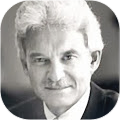Checklist: Finding and Communicating with an Expert Witness
Disability Insurance Claim Advice
Qualifications: Experience and background to look for in an expert
By Arthur L. Fries, RHU
As published in: Orange County Bar Association, April, 1998, pg. 45
1) Prior experience as a consultant or expert witness;
2) "Hands on" experience related to his or her product or service;
3) A successful track record from a financial standpoint related to his or her area of expertise;
4) A history of having "lived through'' several cycles over the years;
5) A familiarity with ''changes'' that have occurred over the years;
6) A knowledge of the product you are involved with whereby you can explain the meaning in simple lay terms and in the "language" that an attorney understands;
7) Experience in having spoken in front of an audience on the subject;
8) Written articles on the subject;
9) Is a member of national and local expert associations;
10) Is known by others in his or her particular field as well as other attorneys experienced in the specialty of the expert;
11) Has a good relationship with insurance companies (if applicable) from a credibility standpoint and is known by a number of insurance company decision-makers;
12) If declared as an expert, providing a "Bio" that instills confidence and not one that only lists every meeting or course attended;
13) Helps you formulate questions to ask at a deposition or trial and helps develop a strategy to succeed;
14) Be assessable from a time standpoint;
15) Has the ability to have compassion for you, the attorney, and respect for your profession;
16) Has the ability to listen well and to understand that you are under a great deal of stress;
17) Able to render an opinion early on - even if such is negative;
18) Knows the standards of proper behavior in his or her industry.
What to ask the expert:
1) Advise the expert what you expect. For example: Do you want a report in writing . . . do you want a copy of his or her notes or do you want to have only a record of your telephone conversations?
2) Expect to pay a high price for those who are highly qualified and are timely. If there is a required retainer, which is not uncommon, it depends upon the time frame, complexity of the issues and a number of various factors. Don't call an expert if you can't pay his or her fee. If the case needs "working" and you plan to move a minimum amount of paper to just "get rid of it" early on . . . don't waste the time of your expert beyond that of providing preliminary information.
3) Don't call an expert on a Friday when your case is going to deposition the upcoming Monday. An expert should be much more than a name to throw out to the other side. It is well-advised to have the expert involved early on in order that you be properly prepared . . . and the expert must have sufficient time to communicate with you. If the expert is good he or she will be backed up with other cases.
4) Listen carefully to the questions the expert asks you in the initial telephone conversation.Does he or she sound like he or she knows what the score is or must you "pull teeth" to receive an answer? The initial telephone conversation should be at no cost from a fee standpoint. If the expert is good he or she is looking at you just as carefully as you are looking at him or her. Reputation is everything - the expert also needs the desire to keep his or her credibility.
5) Let the expert ask you the key questions to determine if you even have a case. . . once you provide the bottom-line feeling for what the case is about such as the name of the insurance company involved (if any), the name of the law firm on the other side and the key issues of the case. Let the expert know where you are located and answer any questions that he or she feels are important in the initial telephone interview.
6) Advise the expert if he or she is to be declared or do you want him or her to act only in an advisory capacity?
7) Does the expert have any unusual requirements?
8) Know something about the subject you are involved with or depend upon the expert to educate you. Don't try to be an expert in an area where you don't have the experience or qualifications. Treat the expert with the same type of respect you deserve. If you do you will surely find one with the proper qualifications and have communication that you will enjoy.


